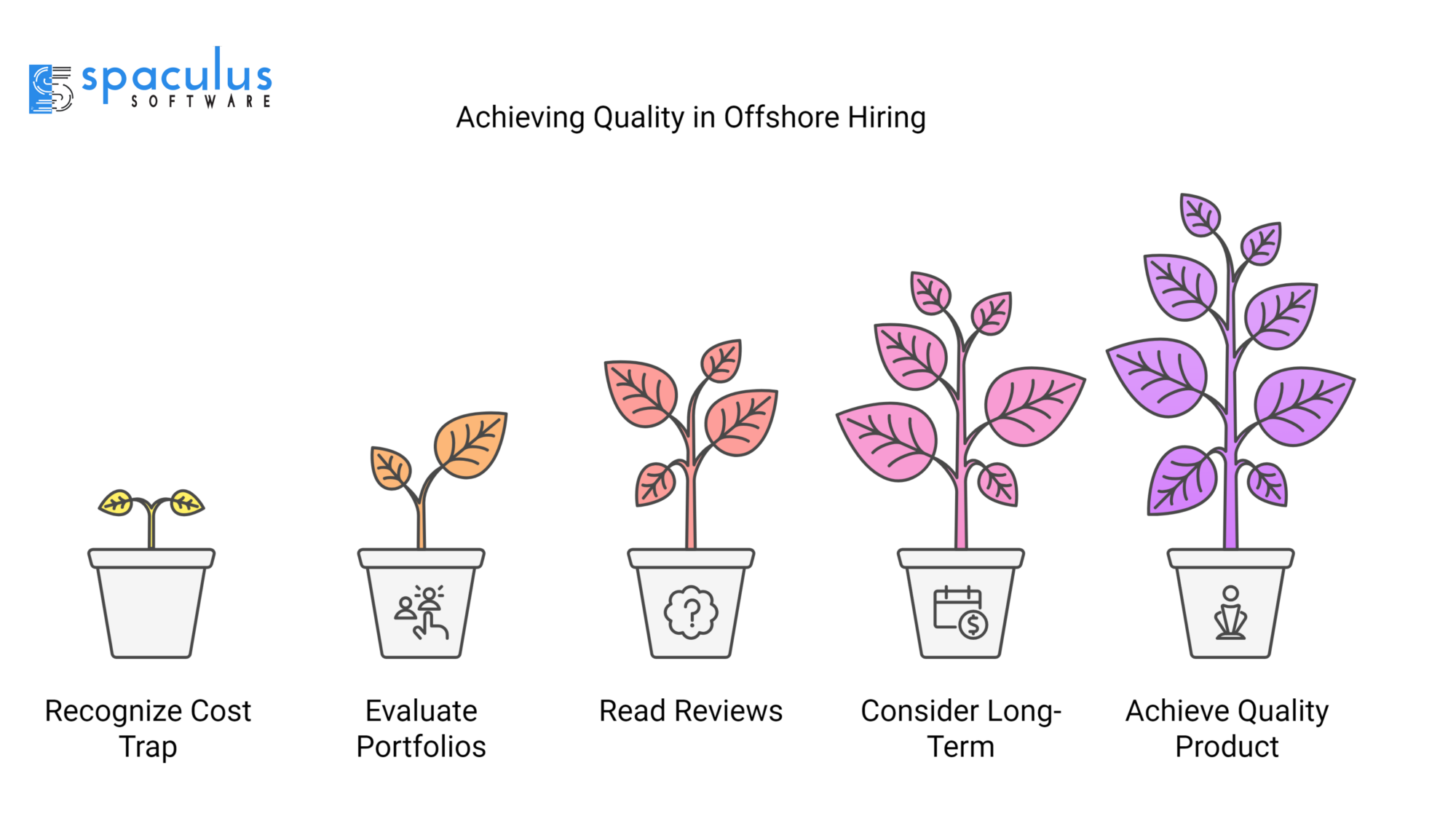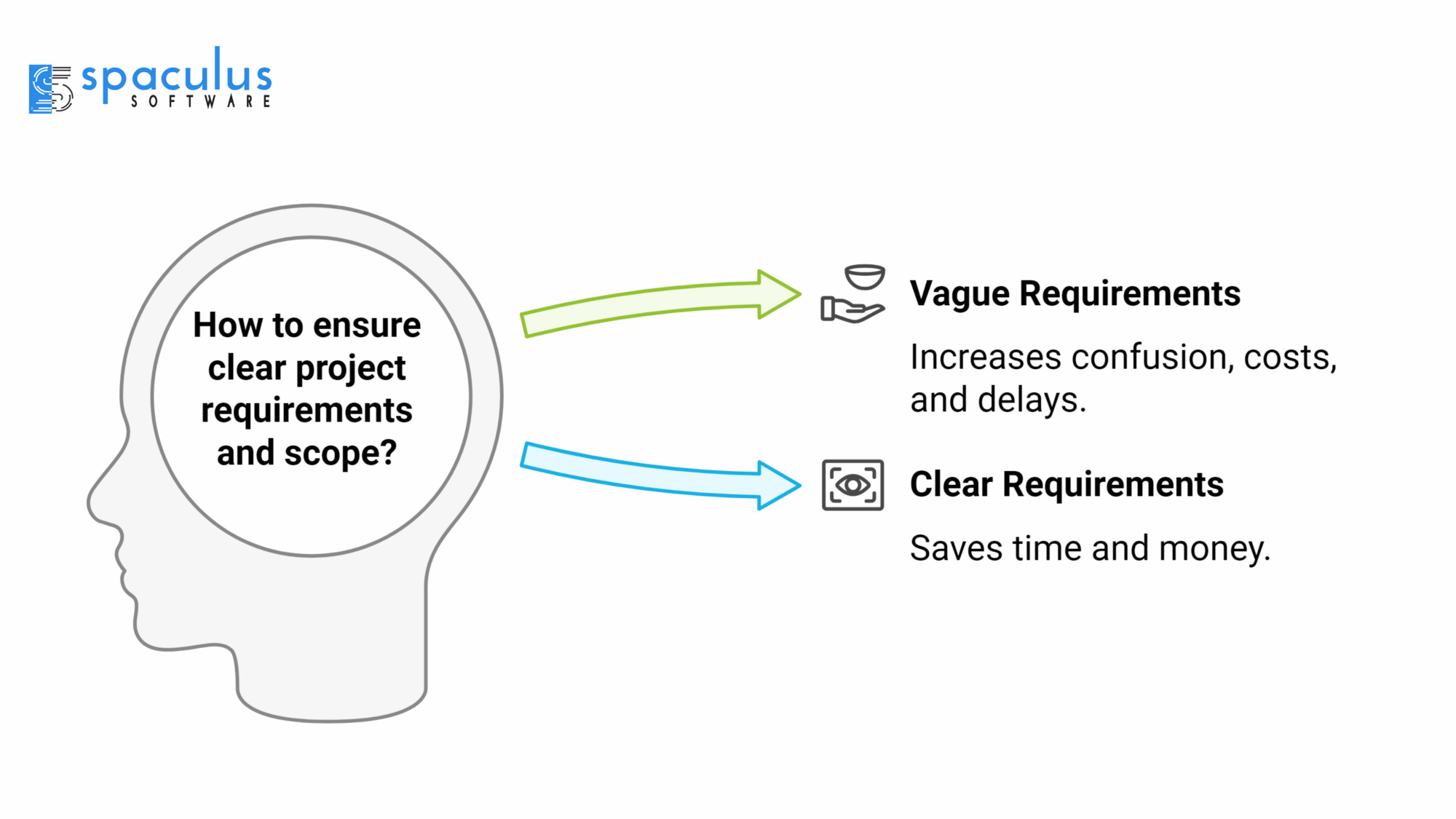5 Costly Team Mistakes to Avoid When Hiring an Offshore Development

Imagine you’re building a house. You wouldn’t buy the least expensive bricks without checking their quality or hire someone to design it without knowing if they’ve built a house before, right?
Hiring an offshore development team is just like that. Your project is the house, and the team you choose is the foundation. If the foundation is weak, the house will crumble. Let’s talk about the common mistakes that can cause this and how to avoid them.
Ask these 5 essential questions before hiring an offshore development team to minimize costly mistakes:
1. How do you ensure accountability if something goes wrong during the project?
(Look for clear answers on handling mistakes, not just vague reassurances.)
2. Can you provide real-time access to project updates and progress?
(Transparency in tracking progress is crucial to avoid surprises.)
3. How do you handle sudden team member changes or resource reallocation?
(This tests their stability and ability to maintain consistency, even in tough situations.)
4. What steps do you take to align with our company’s vision and values?
(Ensures they’re not just coding but truly invested in your long-term goals.)
5. What is your process for handling post-launch challenges or updates?
(Verifies their commitment beyond delivery and their readiness for long-term support.)

1. Prioritizing Cost Over Quality
Think of buying a toy that’s super cheap. It looks good for a moment, but it breaks the next day. When you prioritize cost over quality while hiring an offshore team, you risk getting a product that won’t last.
Many businesses fall into the trap of thinking cheaper is better. Yes, saving money feels great at the moment, but if the code breaks under pressure or requires constant fixes, the real cost skyrockets. For example, one company hired a low-cost team to build their app, only to spend double fixing bugs later.
How to avoid this? Focus on value, not just price. Check the team’s portfolio, client reviews, and the quality of their past projects. Think long-term. A solid product today saves you from future headaches.
2. Inadequate Research and Due Diligence
Hiring a team without research is like trusting a stranger to babysit without knowing if they’ve handled kids before. It’s risky!
Many businesses rush into contracts without asking basic questions like:
- Have they worked on similar projects?
- What tools and technologies do they use?
- How do they handle challenges?
Imagine hiring a team that claims to know the latest tech but is actually using outdated methods. One company learned this the hard way—they hired a team with no experience in their industry, leading to a six-month delay in their project.The solution? Spend time understanding the team. Interview them. Test their knowledge. It’s better to delay hiring than to rush into a costly mistake.
3. Unclear Project Requirements and Scope
Let’s say you ask someone to bake a cake without telling them the flavor or size. Chances are, the result won’t match your expectations. The same thing happens when you don’t clearly define your project’s requirements.

Businesses often say, “We need an app,” but forget to specify what the app should do, who will use it, and how it should work. This creates confusion, increases costs, and delays timelines. A startup once had to scrap an entire project because the offshore team misunderstood the requirements due to vague instructions.
Fix this by breaking your project into clear, actionable steps. Use simple documents, sketches, or even videos to explain what you need. Clear communication upfront saves time and money.
4. Lack of Defined Processes and Workflow
Imagine a team playing football without knowing the rules or positions. Chaos, right? That’s what happens when there’s no workflow in place.
One company hired an offshore team but didn’t set up clear processes. Deadlines were missed, updates were rare, and nobody knew who was responsible for what. This led to frustration and, eventually, project failure.
What’s the fix?
- Use project management tools like Trello, Asana, or Jira to track progress.
- Schedule regular meetings to align everyone.
- Define roles and responsibilities.
Think of the workflow as the rulebook that keeps everyone on the same page.
5. Ignoring Technical Expertise and Compatibility
You wouldn’t hire a chef to fix your car, right? Similarly, you can’t hire a team without ensuring they have the right technical expertise for your project.
A business once hired developers skilled in one programming language, only to realize halfway through the project that another language was better suited for their needs. Switching teams mid-project added months to the timeline.
How to avoid this? Match the team’s skills with your project needs. If you’re building an eCommerce website, check their experience in that space. Look for compatibility, not just in technical skills but also in communication style and time zones.
The Bigger Picture: Planning for Long-Term Collaboration
Hiring an offshore team isn’t a one-time transaction; it’s a relationship. Imagine starting a partnership where you don’t think about the future—it’s bound to fail.
Some businesses hire without considering whether the team can scale with their growth or support the product after launch. This leads to frustration when updates or fixes are needed.
Plan for the future. Ask questions like:
- Can they handle upgrades?
- Do they offer post-launch support?
- Are they open to a long-term relationship?
Mistakes in hiring an offshore team can be expensive, not just in money but in time and trust. But with careful planning, clear communication, and thorough research, you can build a strong foundation for success. Think of it as investing in the right team to build your dream house—solid, secure, and made to last.
Why Choose Spaculus for Offshore Development?
Choosing the right partner for offshore development is about more than just skills—it’s about trust, transparency, and long-term success. At Spaculus, we don’t just build software; we build relationships. Here’s why businesses around the globe rely on us:
- Expertise that Matches Your Vision: Our team is skilled in diverse technologies and industries, ensuring your project is handled by experts who understand your unique needs.
- Transparent Processes: From real-time project updates to clear communication, we ensure you’re always in the loop, so there are no surprises.
- Commitment Beyond Delivery: We don’t just stop at the final product. Post-launch support and scalability are part of our promise to help your business grow.
- Tailored Solutions: Every business is different, and so are its needs. We craft solutions that align perfectly with your goals, not one-size-fits-all templates.
- Proven Track Record: With years of successful projects and satisfied clients, our results speak louder than words.
When you choose Spaculus, you’re not just hiring a team—you’re partnering with professionals who are as invested in your success as you are. Let’s build something remarkable together!
Tags
Categories
- API Integration (3)
- App Development (36)
- Artificial Intelligence Insights and Trends (23)
- Business Analytics (10)
- Cloud Computing (5)
- Digital Marketing (9)
- eCommerce Insights and Trends (3)
- Explore Blogs on Technology and Innovation (8)
- IoT Insights and Latest Trends (7)
- Latest Updates (20)
- Live Streaming (2)
- Marketing Automation (1)
- RPA Insights and Applications (2)
- Tech World (22)
- Uncategorized (2)
- Web Design (14)
- Web Development (23)







